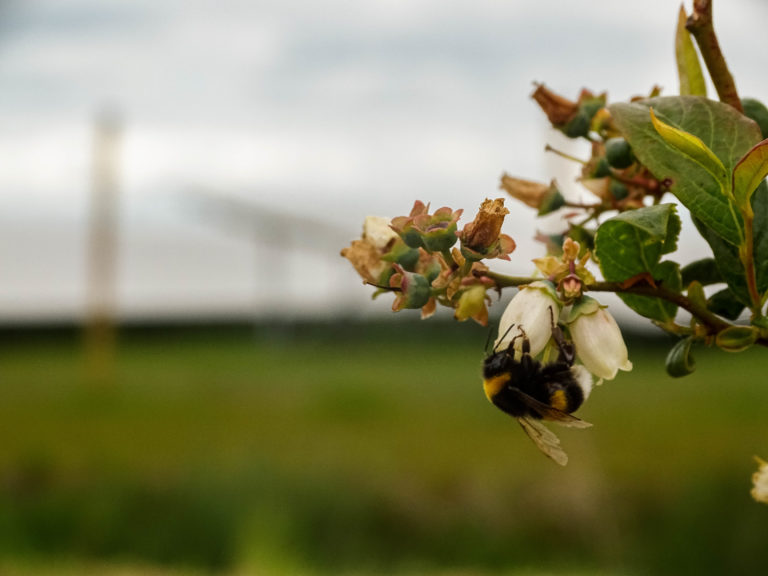How tackling climate change is seeing economic and social returns

By Dr Daniel Davies, Africa General Manager, Solarcentury
As school children across the world highlight the importance of urgent action on climate change, a wave of renewable energy investment in Africa provides hope for the future of our planet – and for some of its lowest income communities.
The economics of energy are changing. Falling costs and smart technology are making solar and wind cheaper than “conventional” power for the first time – and nowhere is that truer than in Africa, with its ready supply of sunshine.
Now solar power is replacing fossil fuels to provide a low-cost, clean local power supply for rural communities across the continent, where 600 million people (IEA) currently live without access to electricity.
From Nigeria to Kenya, Ghana to Eritrea, Solarcentury is working with businesses to generate safer, cheaper electricity that’s also better for the environment.
With emissions continuing to rise, and with Africa set to account for 25% of the world’s population by 2050, the advent of low-cost, sustainable local production could be a game-changer – both in the global fight against climate change, and in the development of one of the world’s poorest regions.
Solar and wind power are set to provide over 50% of the world’s electricity by 2050 according to Bloomberg’s recent New Energy Outlook.
Much has been written on the immediate benefits of small-scale solar products which can displace costly, dirty and dangerous kerosene lanterns and provide small power for micro businesses. The instant benefits are clear to anyone who has lived or travelled in the rural areas of Africa. But micro-grids and solar farms hold the potential to drive meaningful change in the region too.
At present 40 per cent of Africans are under the age of 15. Whilst this demographic presents obvious challenges there is an opportunity for Africa to make use of this relatively low cost and energetic work force to attract global manufacturing businesses; but one of the key ingredients is missing: low cost power.
Low cost power has been the key to industrial development across the globe; the industrial revolution in northern Europe was driven by wood and coal, more recently China’s emergence as a manufacturing super power was based on affordable labour and low cost coal power.
The power infrastructure in Africa is work in progress, distribution networks are slowly extending to more and more people and generation is being built. Nevertheless, there are over 600M people in sub-Saharan Africa without access to grid power and where power is available it is often expensive due to historic low levels of investment in infrastructure and power generation equipment. As a result most businesses, even where grid connected, will have back up diesel generators to provide power during outages. Energy price, quality and availability is therefore a brake on economic development.
Solarcentury is working with businesses in Africa to deliver low cost solar power solutions to reduce energy related operating costs. The adoption of hybrid power solutions enable solar to operate in parallel with the grid and reduce utility costs or to operate in parallel with generators to reduce fuel consumption. The increasing maturity of battery energy storage solutions (BESS) means that larger solar power plants can be deployed and interaction with the utility power supply or on site generators can be optimised for cost and quality.
In Nigeria, Solarcentury has provided a solar power plant for the Tulip Coca Processing factory east of Lagos. The solar panels have been installed on the roof of the factory and on ground structures. Dutch switchgear and energy storage company Alfen integrated a battery to the power supply system which means that the site, previously powered by an on site heavy fuel oil generator, can now run on solar power without needing to run the generator unless cloudy weather results in a low state of charge in the battery. If the generator starts it is able to run at peak efficiency as it powers the factory and helps to recharge the battery. This system provides cheaper, cleaner, higher quality power to the factory and delivers fuel savings and operational improvements.
In Kenya and Ghana we have installed multiple solar systems for clients where the solar reduces grid use and generator use, with savings that go directly to the bottom line of the business. Stronger business can invest to grow, pay taxes, employ more people and drive export opportunities. Solar power is driving economic development.
For those remote from the grid solar power can provide reliable power at scale; in Eritrea we have built two power plants to provide grid quality power to two small towns and their surrounding villages. Supported by the EU and UNDP, the Areza Maidma Hybrid Solar plants combine two solar arrays with state of the art lithium batteries and back up generators to provide power at a fraction of the cost of extending the national grid to these remote locations.
As the world realises the need for urgent action on climate change, it is possible that Africa can lead in the development of a power infrastructure which goes directly to state of the art renewable power; providing a cleaner environment and a competitive edge for African business.


